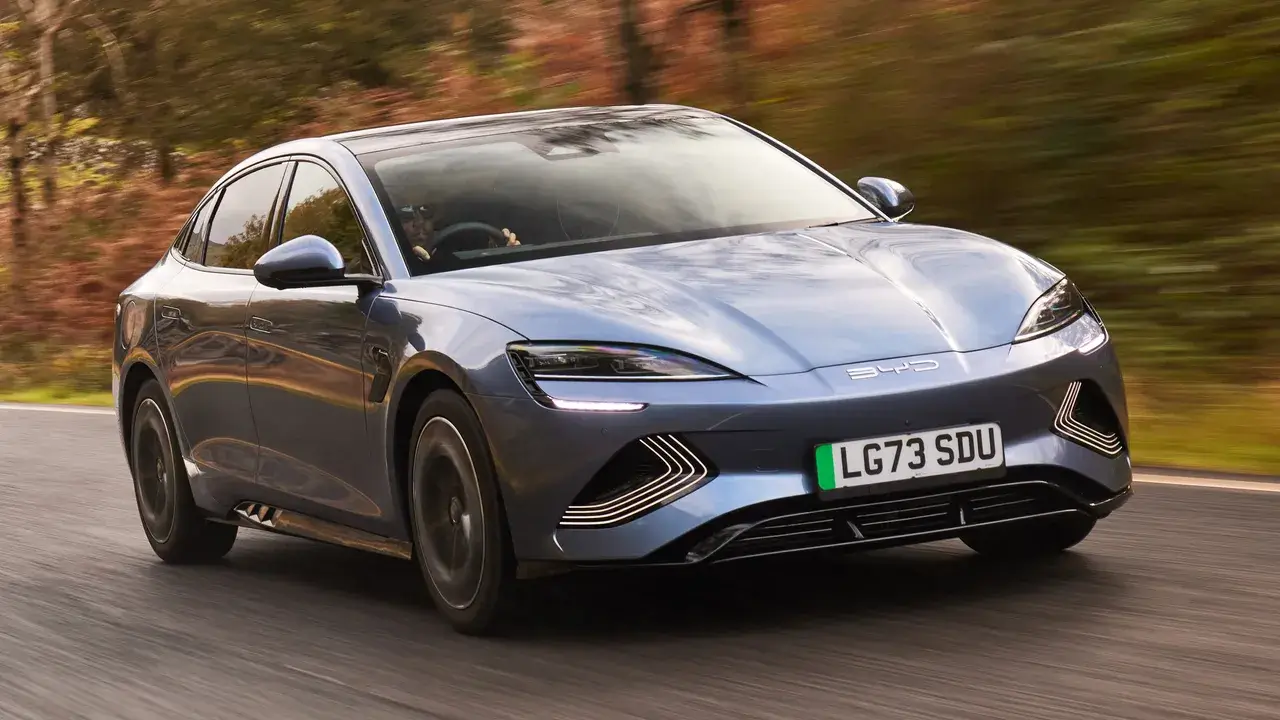BYD's relentless innovation in battery technology is rapidly positioning the Chinese automaker as a significant challenger to Tesla's dominance in the electric vehicle (EV) market. While Tesla has long been synonymous with EV leadership, BYD's advancements, particularly in battery technology, are creating a competitive landscape that could redefine the future of electric mobility.
One of BYD's key innovations is the Blade Battery, a lithium iron phosphate (LFP) battery known for its unique design and enhanced safety features. Unlike traditional lithium-ion batteries that use nickel-manganese-cobalt (NMC) chemistry, the Blade Battery utilizes LFP, which is inherently more stable and less prone to thermal runaway. This makes it significantly safer, as demonstrated by its ability to pass the nail penetration test without catching fire, a feat that many NMC batteries fail. The blade-like arrangement of the battery cells increases the contact area between cells and electrical pathways resulting in efficient heat transfer. This design resembles that of a blade, making it thinner and longer than conventional batteries. This enables BYD batteries to dissipate heat more quickly than typical rectangular cell batteries and prevents continuous electrical short circuits.
Beyond safety, the Blade Battery offers several other advantages. Its cell-to-pack (CTP) technology increases space utilization within the battery pack by over 50%, allowing for more cells to be packed into a smaller space. This translates to higher energy density and longer driving ranges for EVs. Moreover, LFP batteries are generally cheaper to produce than NMC batteries, reducing production expenses by up to 30%, which leads to lower sticker prices for consumers.
BYD's advancements don't stop there. The company has unveiled its next-generation Blade Battery, boasting a 27% increase in energy density, reaching 190Wh/kg. This closes the gap with premium nickel-based batteries while maintaining the safety and cost benefits of LFP. Charging speed is also improved, with the ability to charge from 30% to 80% in just 30 minutes using a 110kW DC fast charger. Furthermore, BYD has announced a breakthrough in ultra-fast charging technology, enabling its new batteries to add 400 kilometers (249 miles) of range in just 5 minutes. This is made possible by a new battery design that can receive one megawatt (1,000 kilowatts) of power, significantly reducing charging times. To support this technology, BYD plans to build over 4,000 megawatt "flash-charging stations" across China.
In contrast, Tesla primarily uses NMC batteries in its long-range vehicles, while also incorporating LFP batteries in its standard-range models. Tesla's 4680 battery cell, designed for high-performance and long-range, uses a tabless electrode design to improve electrical flow and minimize resistance. However, a study has shown that Tesla's 4680 battery generates twice as much heat as BYD's Blade Battery, requiring more advanced and expensive cooling systems. While Tesla is working on improving the production and scaling of its 4680 cells, BYD's Blade Battery offers a compelling alternative that prioritizes safety, cost-effectiveness, and scalability.
BYD's relentless pursuit of battery innovation has already begun to impact the EV market. In early 2025, BYD briefly surpassed Tesla as the world's largest EV manufacturer. BYD sold 4.27 million vehicles in 2024, generating $107 billion in revenue, while Tesla sold 1.79 million units, with $97.7 billion in revenue. BYD's success can be attributed to its vertically integrated operations, which allow it to control costs and quality, as well as its diverse and affordable product lineup. BYD produces its Blade LFP batteries in-house, giving it a competitive edge over Tesla, which relies on external suppliers for some of its batteries.
Looking ahead, BYD plans to roll out solid-state batteries in 2027, with mass-scale adoption expected from 2030. Solid-state batteries promise higher energy density, improved safety, and faster charging times, potentially revolutionizing the EV industry. While Tesla is also working on solid-state battery technology, BYD's advancements in LFP batteries and its plans for solid-state batteries demonstrate its commitment to continuous innovation.
BYD's battery technology is not just a threat to Tesla, but also an opportunity for collaboration. BYD Chairman and President, Wang Chuanfu, has stated that BYD is open to partnerships with other automakers based on its Blade Battery technology. In fact, there have been reports of a past collaboration between BYD and Apple focused on developing long-range EV batteries. This collaboration, though Apple's car project was eventually shelved, helped shape the battery technology that powers millions of BYD cars today.
As the EV market continues to grow, battery technology will play a crucial role in determining which companies will lead the way. BYD's focus on safety, cost-effectiveness, and continuous innovation positions it as a major contender in the EV race, posing a significant challenge to Tesla's long-standing dominance.

















